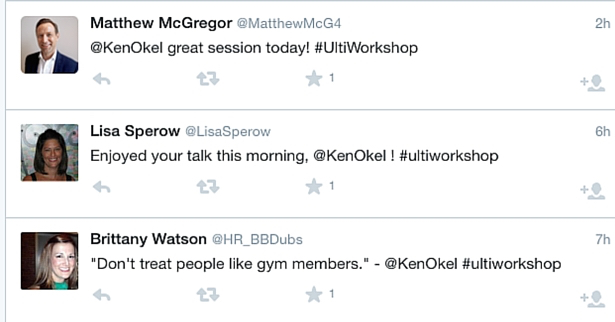
Good communication at work is a top skill that can improve your career. It’s not about bragging but rather broadcasting your successes and recruiting resources that can help you reach a new level.
Good communication can also take you out of a passive mindset, where you feel dependent on luck or other outside forces to move ahead. To start, you may need to shift your thinking.
I’m reminded of the times when I’ve been in parades. They happened when I worked in TV news. Sometimes, as a minor, local celebrity, I’d be sitting in a nice car. Sometimes, I’d be sitting on a bale of hay in a trailer.
In all cases, I realized something about being in a parade and interacting with the public: You have to initiate the connection, whether it’s a wave, a smile, or a friendly remark.
If you just stare at people, then they stare back at you. It’s awkward. While your interaction may just be a matter of seconds, you want it to seem like you’re saying, “I’m in a parade. I’m having fun. And I want to share a moment with you.”
On the job, you can have these parade moments with your coworkers, as well as people you meet while networking. Consider these steps to create good communication:
Sharing Accomplishments Is Good Communication
Tell people something good that’s just happened to your or your team. Often, we say our title or our business name and stop there, expecting the other person to be dazzled. In most cases, they have no idea what you really do.
Wouldn’t it be better to take someone into the world of your job and give them a chance to celebrate a success?
Bad news is never in short supply. Give some good news.
This process requires some thought. How do you avoid being boastful? There’s a difference between these two sentences:
- I just traveled first class across Europe.
- I just checked an item off my bucket list, as I took the trip of a lifetime in Europe.
The information is similar but the packaging is different. Hopefully, you felt the second sentence was more relatable.
A good test is to see if adding the words “…because I’m fabulous” to the end of the sentence fits. If it does, think more about why what your saying is important to you.
This shift can rescue you from the feeling that you’re bragging. If you just hit a record sales goal for the quarter, then maybe you focus less on the sales and more on the service you’re providing.
You could say something like, “My team is so excited that we gave a record number of customers a tool that will make their lives better.”
These shifts in phrasing can lead to a conversation. It’s hard to have a conversation if the other person is just narrating a highlight reel.
Maybe you’re doing well but nothing exceptional has happened recently. A small victory, like getting rid of something frustrating, can be very relatable to another person.
“We just replaced the stapler that was always jamming. I can’t tell you how excited we were to throw it out.”
While replacing a bad stapler may not be headline news, most people can empathize with the situation. It’s shared pain.
Asking for Help Is Good Communication
It’s easy to share successes but harder to talk about challenges. The thing to keep in mind is that people often are more interested in helping with a problem than they are with hearing everything is perfect.
Asking things like, “What’s the best way to work with Millennials?” or “How do you rally your team after a disappointing quarter?” are examples of open ended questions. You’ve defined a challenge and are honoring someone by asking for help.
At a minimum, you’ll likely receive an acknowledgement of the problem. At best, you may get a possible solution and become recognized as someone who seeks out answers and doesn’t accept a poor status quo.
If someone gives you advice, you need to consider or act on the advice. You might be asked about it the next time you meet with the person. It’s not good to say, “Huh?” when asked for an update about the potential solution.
Give people the opportunity to be heroes when you encounter problems. Colleagues and peers are frequently a better source of information than Google.
Conclusion
Changing how you communicate can unlock opportunities and allow you to highlight success without bragging.
Looking for a productivity edge? New tips come out every week in our video series.






